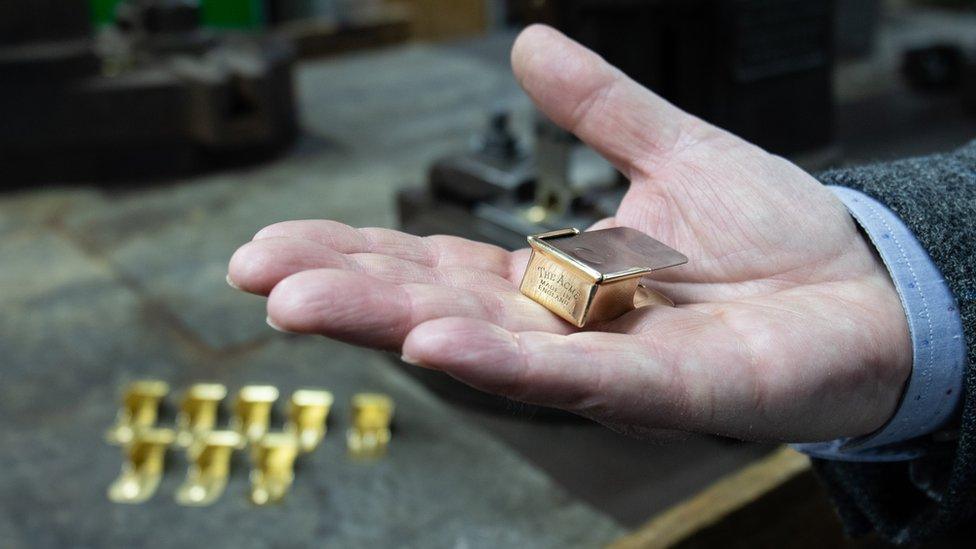D-Day landmarks listed for 75th anniversary
- Published
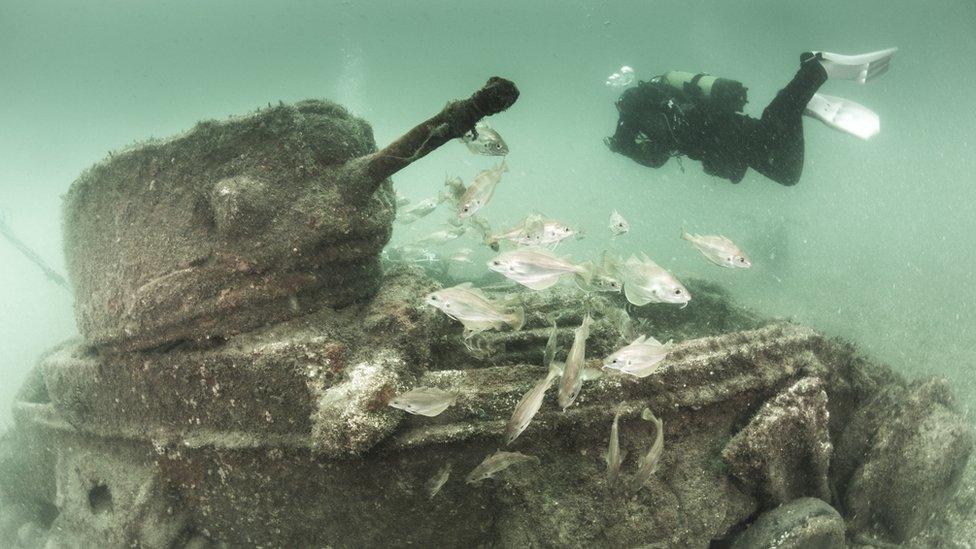
Historic England said it was vital to protect the World War Two structures
World War Two landmarks will be protected by the government to mark the 75th anniversary of the D-Day landings.
Six replica landing craft, nine sunken tanks, two armoured bulldozers and parts of Mulberry harbours in Dorset, Devon and West Sussex will be listed.
D-Day, which took place on 6 June 1944, was the largest combined land, air and naval operation in history.
Historic England said it was vital to protect the structures "as a memorial for future generations".
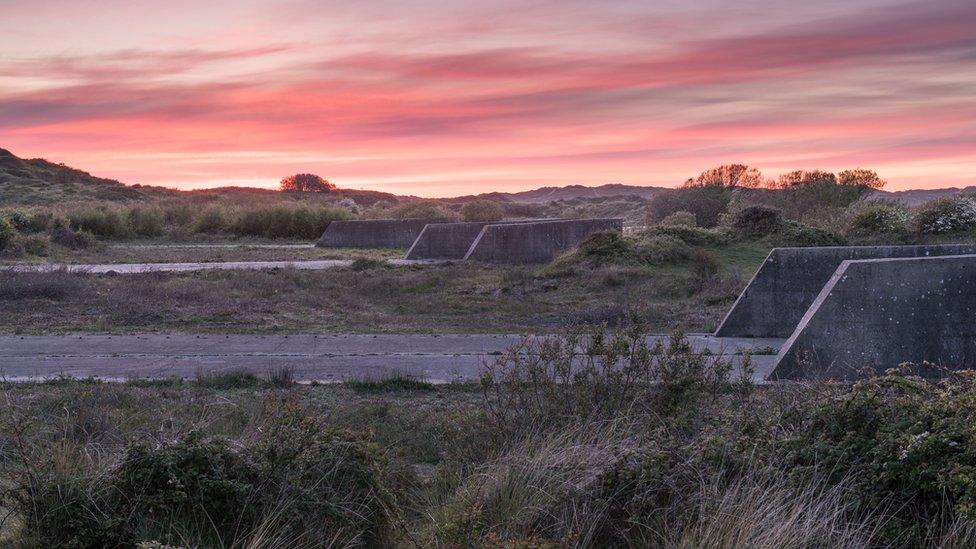
Replica landing craft installations in Braunton Burrrows, Devon
"As we commemorate the 75th anniversary of D-Day, it is right that we continue to honour the memory of those who fought for peace in one of the decisive moments of the Second World War," Culture Secretary Jeremy Wright said.
"It is also right to recognise the engineering and ingenuity that enabled that offensive.
"By listing the landing crafts, tanks, bulldozers and floating harbours we can ensure that future generations can learn about this important moment in our history."
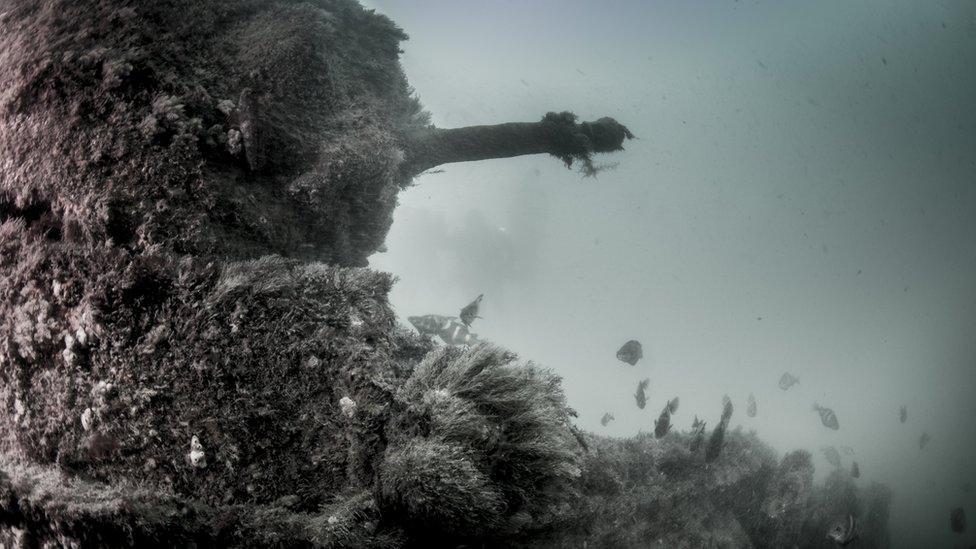
Seven Army tanks lost during a D-Day rehearsal off Studland Beach in Dorset will be listed
"Evidence of D-Day planning, rehearsal and the actual operation is all around us, on our coastline and in our waters, helping to tell the D-Day story," said Duncan Wilson, chief executive of Historic England.
"These tanks, armoured bulldozers, Mulberry harbour components and concrete training landing craft are important as a witness to the great engineering achievements and logistical preparations around England's coast for the largest amphibious invasion ever undertaken.
"It is vital that we protect them as a memorial for future generations."
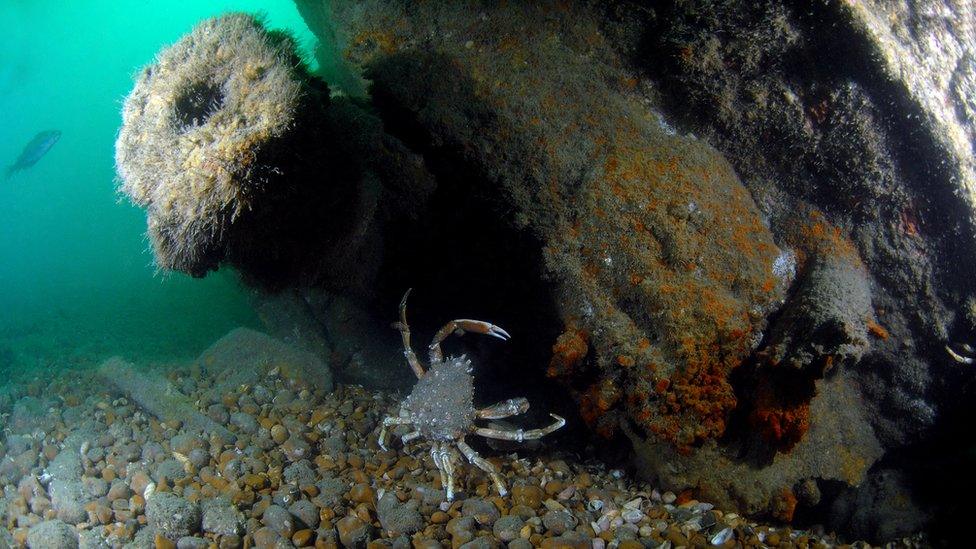
A Centaur tank in the Solent
More than 150,000 soldiers from the UK, US, Canada and France landed on the beaches of Normandy.
The many rehearsals and training exercises carried out along the coastline of Devon and Dorset, together with the engineering achievements of the Mulberry harbours, contributed to the success of the D-Day landings.
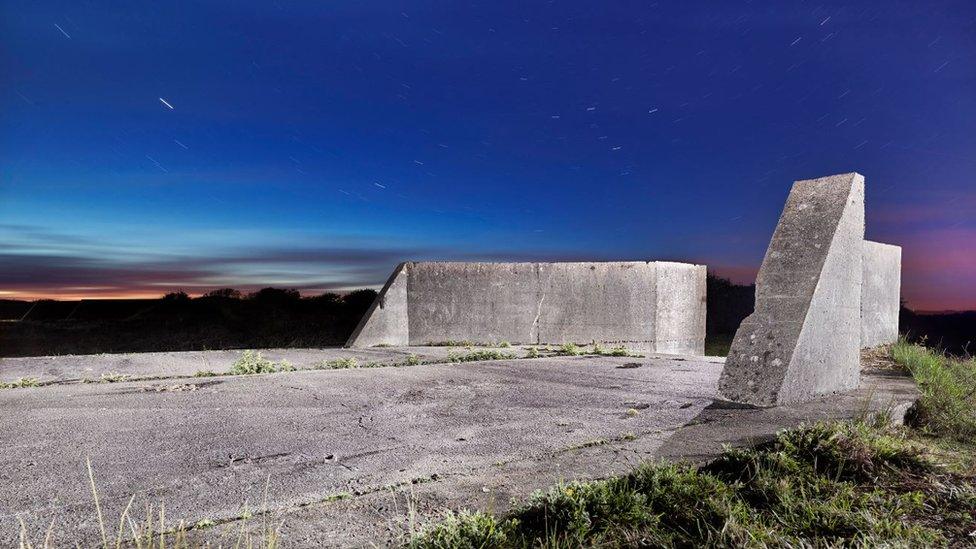
These concrete installations were used for training US troops at Braunton Burrows
Six replica landing craft installations made of concrete and used for training US troops at Braunton Burrows in Devon are now listed.
Seven Valentine tanks that sank in Poole Bay in Dorset shortly after driving off their landing craft, killing six crewmen, are also protected.
Also listed are a landing craft, two Centaur cruiser tanks, two armoured bulldozers, a 4X4 vehicle and a jeep that sunk off the coast of Selsey Bill in West Sussex.
Parts of an old Mulberry harbour off the coast Pagham in West Sussex will also be saved.
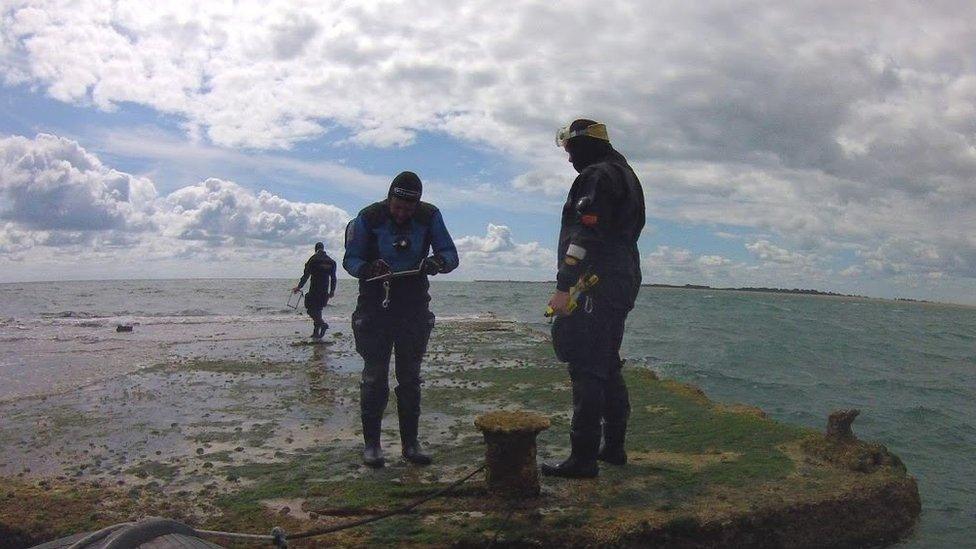
A Mulberry harbour pier head off Pagham, West Sussex
The majority of the newly protected structures have been identified by military enthusiasts, the Friends of the Assault Training Center.
They will be working with Historic England, North Devon Area of Outstanding Natural Beauty and Christie Estates to conserve and manage them after the anniversary.
All pictures are subject to copyright.
- Published31 May 2019

- Published16 May 2019
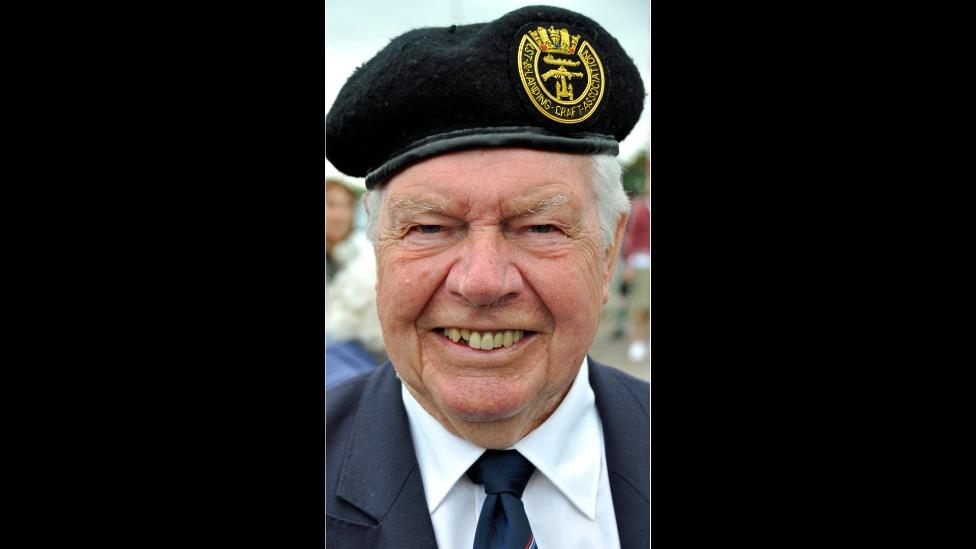
- Published28 April 2019
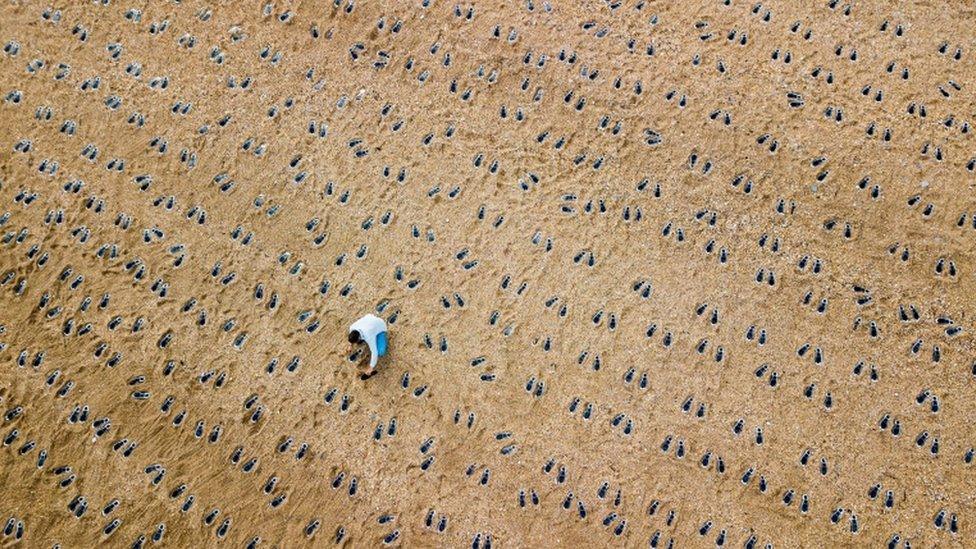
- Published26 April 2019
